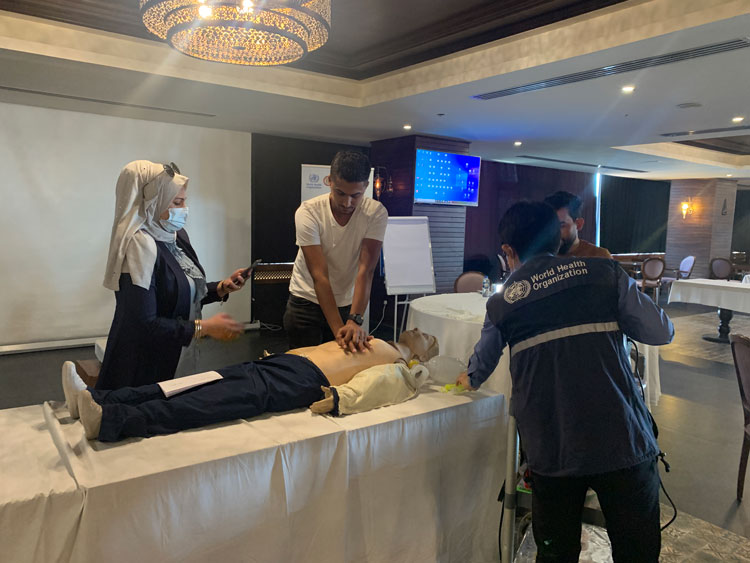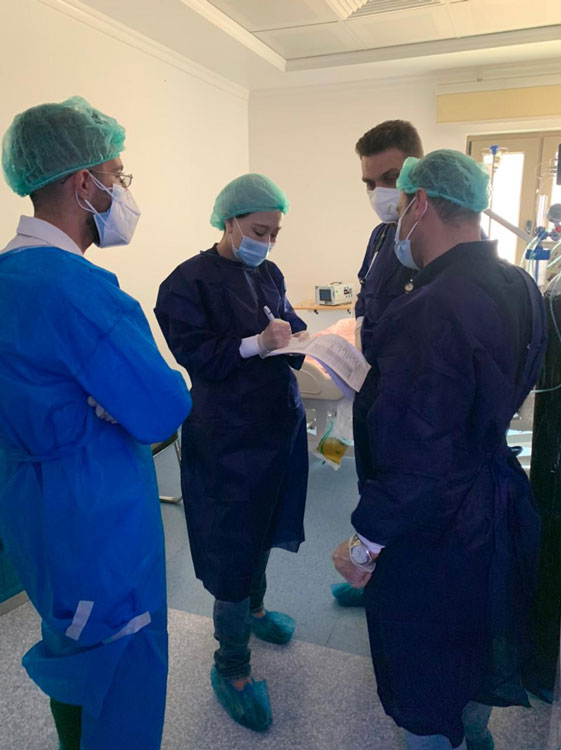 20 June 2021 – The clinical management pillar of WHO’s regional incident management support team has recently completed training of trainers for intensive care doctors and nurses in Iraq as part of its ongoing response to surge demand for intensive care beds and critical care during the COVID-19 pandemic.
20 June 2021 – The clinical management pillar of WHO’s regional incident management support team has recently completed training of trainers for intensive care doctors and nurses in Iraq as part of its ongoing response to surge demand for intensive care beds and critical care during the COVID-19 pandemic.
Like in other complex emergencies, COVID-19 has highlighted a significant need for intensive care and critical care capacity-building among health care professionals in the country. To address this need, 6 rounds of 3-day workshops were held between 16 May and 4 June to train 87 health care professionals who are currently working in COVID-19 intensive care units (ICUs) from all governorates in Iraq. These included 42 doctors and 45 nurses and anesthesia technicians.
The training of trainers provided an introductory course on intensive care and critical care for COVID-19 patients, and covered core life support skills and the management of critically ill patients. The training agenda was designed to be flexible and adaptive to local needs and responsive to the requests made by participants and the Ministry of Health to best meet the gaps in ICUs and critical care in the country.
A variety of training methods were used, including lectures, demonstrations, group discussions and feedback, interactive question and answer sessions, practical learning stations and quizzes. All materials used during the lectures, along with additional electronic textbooks, were provided to participants for subsequent cascade training at subnational level.
 Participants demonstrating outstanding skills, knowledge and attitude were identified throughout the training and selected to receive WHO and Ministry support to conduct cascade training to additional doctors and nurses in their respective governorates.
Participants demonstrating outstanding skills, knowledge and attitude were identified throughout the training and selected to receive WHO and Ministry support to conduct cascade training to additional doctors and nurses in their respective governorates.
During the training period and in the week following completion of the workshops, site visits were conducted to COVID-19 hospitals and ICUs and an assessment was conducted. The ICU assessment tool focused on the quality of services, patient safety strategies, the competency level of clinical services, the level of process capabilities and the impact on patient outcomes. The purpose of the assessment was to help ICU staff identify gaps that require continuous quality and safety improvements. During site visits, the team also worked on developing standard operating procedures to be adapted to public health services in Iraq.
WHO will continue to follow up on the implementation of the cascade training in Iraq, and also expand this training to other priority countries in the Region.
Related links
WHO trains critical care/ICU nurses in the Gaza Strip in response to COVID-19
Building Somalia’s capacities in critical and intensive care


